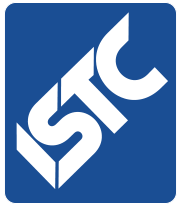Maria B. de la Serna-Lopez
Published 26th August 2025
Find out how to have your own ‘wizard’ story at the end of this article.
I am part of the team preparing this year’s TCUK conference. Volunteering has given me the opportunity to learn and gain hands-on experience with WordPress, a widely used content management system.
Alongside new technical skills, I’m strengthening my remote-working habits and learning how to support a team so we can hit our goals together.
I have created two pages so far for the TCUK25 website, a how to guide: ‘How to get to TCUK25’, and a ticket information table: ‘TCUK25 – Tickets’. It might sound simple, but the learning curve was steep. At times it was frustrating, and I thought about giving up and telling the team that I didn’t have the bandwidth to tackle the task I had volunteered to do. However, I persevered. I asked for help, and the whole process ended up being a truly worthwhile experience.
This has been an amazing opportunity to learn by doing.
This has been an amazing opportunity to learn by doing. I have picked up valuable technical and teamwork skills and I can now say that I am comfortable using WordPress, something that felt intimidating just a few months ago. I’m ecstatic!
The how to guide was my first time building and formatting a live web page in WordPress. I started with a very basic HTML file. It had the information, but it didn’t follow the patterns or structures that make TCUK25 content feel consistent. It didn’t follow the ISTC’s style guide. Using Basecamp, our collaboration platform, I shared it with the team and asked for guidance.
The webmaster organised a couple of seminars for any of us who wanted to understand WordPress and how to use it. That support helped me turn my draft into a page that followed the official colour palette and tone of TCUK25.
Please, visit the official TCUK page, see the prices, buy your ticket, and take a moment to admire my work!
The new version feels seamless and coherent with the rest of the site. This small project taught me a great deal about layout, visual consistency, and what goes into creating effective digital content. It also reminded me of the importance of recognising when to ask for help and to always put my work forward for feedback. The old adage ‘two heads are better than one’ is never truer than in technical communication.
Volunteering has given me more than just experience. It has given me a sense of community, purpose, and belief in my abilities. I am proud of my achievements volunteering at TCUK25, happy to support the ISTC and its conference, and excited about what’s next.
Using what I had just learnt, I created the second page for ticket information. My first draft borrowed the layout from ‘How to Get to TCUK25’. I shared it in Basecamp, and the feedback was unanimous (and yes, a bit ‘devastating’!): this type of content needed a radically different approach.
In the Diátaxis framework, a ‘how to’ content is a procedure, but a ticket prices page is reference content; it aims to help readers to make a quick decision by presenting the right facts in a clear format (and with a call to action). The team shared examples of formats better suited to an ‘at-a-glance’ overview of prices and categories.
Volunteering has given me more than just experience. It has given me a sense of community, purpose, and belief in my abilities.
From those examples, I chose a design that resembles a paper folder with tabs, and I produced four versions. Each table represented a different way of understanding the conference, our members, the ticket categories, and the ISTC itself.
I hadn’t appreciated how a “simple” table can shape how you perceive an event, or the organisation behind it.
Eventually, the volunteer team approved one version, and it is now published! Please, visit the official TCUK page, see the prices, buy your ticket, and take a moment to admire my work!
Take part in TCUK25: Volunteer with us
Bring your expertise (or your enthusiasm) and in return gain new skills, find real support, and join a community that loves language and technology. Email: tcuk@istc.org.uk to get involved. Don’t wait…
